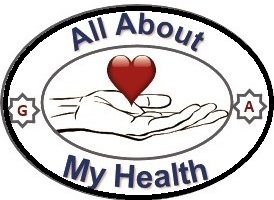Introduction
Kidney disease often develops silently, with symptoms manifesting only in advanced stages. Moreover, the mental health toll on individuals living with kidney disease is frequently underestimated. A healthy diet, particularly one designed for kidney health, can slow disease progression and improve quality of life. This article delves into the causes, symptoms, mental health implications, and dietary strategies associated with kidney health, empowering readers to take proactive measures.
Understanding Kidney Disease
1.1 The Role of the Kidneys
The kidneys are located just below the rib cage and are responsible for maintaining homeostasis by:
- Filtering waste and excess fluids from the blood to form urine.
- Regulating essential minerals like sodium, potassium, and calcium.
- Producing hormones that aid in blood pressure regulation and red blood cell production.
Without proper kidney function, waste products build up in the body, leading to complications like high blood pressure, bone disease, and anemia
1.2 Causes of Kidney Disease
Chronic kidney disease (CKD) develops over time, often due to:
- Diabetes: High blood glucose damages kidney blood vessels. This is the leading cause of CKD globally, with nearly 1 in 3 diabetes patients affected.
- Hypertension: Sustained high blood pressure harms the delicate structures of the kidneys.
- Other Risk Factors:
- Genetic predispositions such as polycystic kidney disease.
- Recurrent urinary infections or obstructions.
- Long-term use of medications like NSAIDs or proton pump inhibitors.
Environmental and lifestyle factors, including poor diet and smoking, also increase CKD risk
1.3 Symptoms of Kidney Disease
CKD is often asymptomatic in its early stages, making regular health check-ups critical.
- Early Symptoms:
- Fatigue
- Swelling in the legs and ankles
- Frequent urination, especially at night
- Advanced Symptoms:
- Nausea and vomiting
- Loss of appetite
- Cognitive difficulties like memory problems
Early detection is vital since CKD progression can lead to end-stage renal disease (ESRD), requiring dialysis or transplantation
1.4 Prevention Strategies
Preventing kidney disease is achievable through:
- Regular Screening: Blood and urine tests help monitor kidney function.
- Blood Pressure and Blood Sugar Control: Keeping these within healthy ranges reduces kidney damage risks.
- Dietary Modifications: A balanced diet low in sodium and saturated fats supports kidney health.
- Avoiding Harmful Substances: Limiting alcohol, avoiding smoking, and consulting a doctor about medications can protect kidney function
The Mental Health Impact of Kidney Disease
Living with kidney disease presents a host of mental health challenges, which are often compounded by the physical burden of the disease.
2.1 Emotional and Psychological Challenges
CKD patients face higher rates of depression and anxiety compared to the general population. Studies suggest that:
- Up to 30% of dialysis patients experience clinical depression.
- Fear of disease progression and dependence on dialysis significantly impact mental health
2.2 The Mind-Body Connection
Mental health directly affects the management of kidney disease:
- Poor Adherence: Depression may lead to skipping treatments or dietary lapses.
- Chronic Stress: This exacerbates inflammation, which is detrimental to kidney function.
2.3 Coping Strategies
- Psychological Support: Counseling and cognitive behavioral therapy can improve emotional resilience.
- Stress Management Techniques: Yoga, meditation, and mindfulness practices are effective in reducing anxiety.
- Social Support: Engaging with peer groups helps CKD patients share experiences and reduce feelings of isolation
The Power of a Renal Diet
3.1 What Is a Renal Diet?
A renal diet is tailored to reduce kidney workload by controlling the intake of:
- Protein: Excess protein increases waste, straining the kidneys.
- Sodium: Reducing salt helps control blood pressure and fluid retention.
- Potassium and Phosphorus: High levels of these minerals can cause heart and bone complications
3.2 Dietary Recommendations
Foods to Include:
- Fresh fruits like apples and berries.
- Low-potassium vegetables like cauliflower and cabbage.
- Lean proteins such as chicken and fish (in moderation).
Foods to Avoid:
- Processed foods high in sodium.
- High-potassium foods like bananas and oranges.
- Dairy products and nuts, which are rich in phosphorus.
3.3 The Role of Hydration
Staying hydrated aids in kidney function, but CKD patients should consult their doctor about appropriate fluid intake.
3.4 Working with a Dietitian
Registered dietitians help CKD patients develop personalized plans that align with their stage of kidney disease and dietary preferences
Call to Action: Protect Your Kidney Health
Kidney disease is preventable and manageable if addressed early. Here’s what you can do today:
- Schedule regular kidney screenings.
- Maintain a healthy weight through balanced eating and exercise.
- Seek mental health support when needed.
Conclusion
Kidney health is an integral part of overall well-being. By understanding kidney disease, its risk factors, and its mental health implications, you can take proactive steps to protect your kidneys. Remember, adopting a renal-friendly diet and seeking timely medical intervention can make a significant difference in your health journey.
Make kidney health a priority today for a healthier tomorrow!
For more medical information to help you make informed decision about your health and the health of the person you care visit our other bog posts at Home – All About My Health and/or YouTube channel at https://www.youtube.com/@Gaynalem
